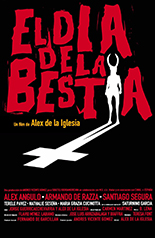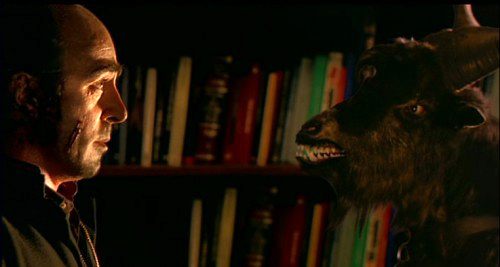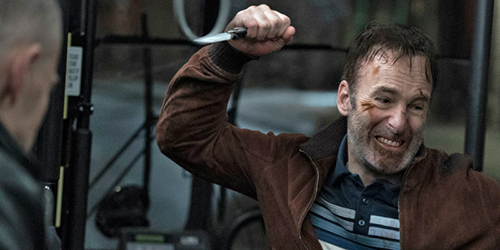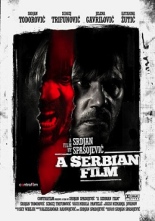
 Srdjan Spasojevic’s A Serbian Film is so repellent, so sick, so depraved, it may turn you xenophobic. It begins with a toddler watching his father, Milos (Srdjan Todorovic), pounding away at some woman on a porno. Oh, the memories! Milos since has retired from the industry, but the one-time “Balkan sex god” is in need of some cash, so when he’s approached by some high rollers to shoot an arty film they claim is only for foreign markets, and offer him enough money that he’ll be set for life, he’s ready to throw his hat — and by hat, we mean dick — back into the ring.
Srdjan Spasojevic’s A Serbian Film is so repellent, so sick, so depraved, it may turn you xenophobic. It begins with a toddler watching his father, Milos (Srdjan Todorovic), pounding away at some woman on a porno. Oh, the memories! Milos since has retired from the industry, but the one-time “Balkan sex god” is in need of some cash, so when he’s approached by some high rollers to shoot an arty film they claim is only for foreign markets, and offer him enough money that he’ll be set for life, he’s ready to throw his hat — and by hat, we mean dick — back into the ring.
You’ve likely already heard about the atrocities Milos commits for the camera, so you may be thinking, “Should I really watch it?” That depends on how much you wanna see Milos jerk off next to a Dumpster while he gazes at an underage hooker, or hear a story about monks making a sandwich spread out of blood, semen and milk.
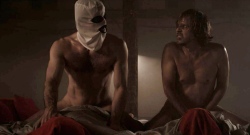 And that’s nothing compared to him beating and ultimately beheading a woman as he rapes her from behind. Or having to fuck a newborn baby. Or finding out that the masked person under the sheets he’s been raping is his own son. Or punching out a guy’s eyes with his bloody, erect member. A friend warned me, “There’s no reason to watch this. Turn it off now before you see things you can never unsee. And this is coming from me.”
And that’s nothing compared to him beating and ultimately beheading a woman as he rapes her from behind. Or having to fuck a newborn baby. Or finding out that the masked person under the sheets he’s been raping is his own son. Or punching out a guy’s eyes with his bloody, erect member. A friend warned me, “There’s no reason to watch this. Turn it off now before you see things you can never unsee. And this is coming from me.”
He was right: There is no reason to see A Serbian Film, even out of sheer curiosity. I mean, what’s the point? That raping people is bad? I already knew that, Spasojevic, thanks. Claim it’s pointed, political art all you want, but I have to disagree. I shudder to think there’s someone out there literally getting off on the acts it portrays — and you know he/she/them exists. Whoever you are, please consider incarcerating yourself. Kthx. —Rod Lott


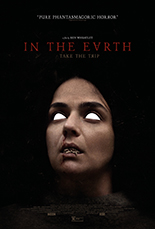 With movies being a great escape from the grind of daily life, it’s ironic that the global pandemic has kept them off-limits for about a year. Now that we have figured out how to co-exist with the virus — well, some of us, anyway — we can attend an actual theater again!
With movies being a great escape from the grind of daily life, it’s ironic that the global pandemic has kept them off-limits for about a year. Now that we have figured out how to co-exist with the virus — well, some of us, anyway — we can attend an actual theater again! 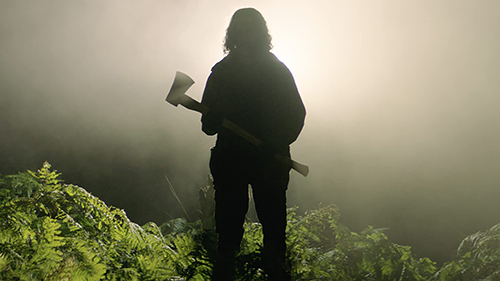
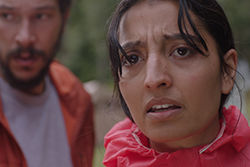 It gives nothing away to say In the Earth finds a “happy” medium between the ghostly phenomenon of
It gives nothing away to say In the Earth finds a “happy” medium between the ghostly phenomenon of 
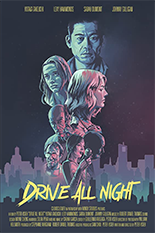 In
In 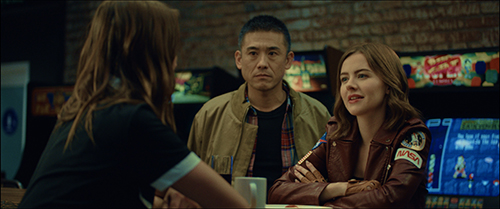
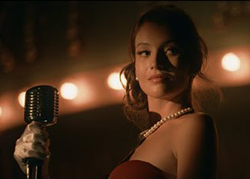 Cara: “I like you.”
Cara: “I like you.”